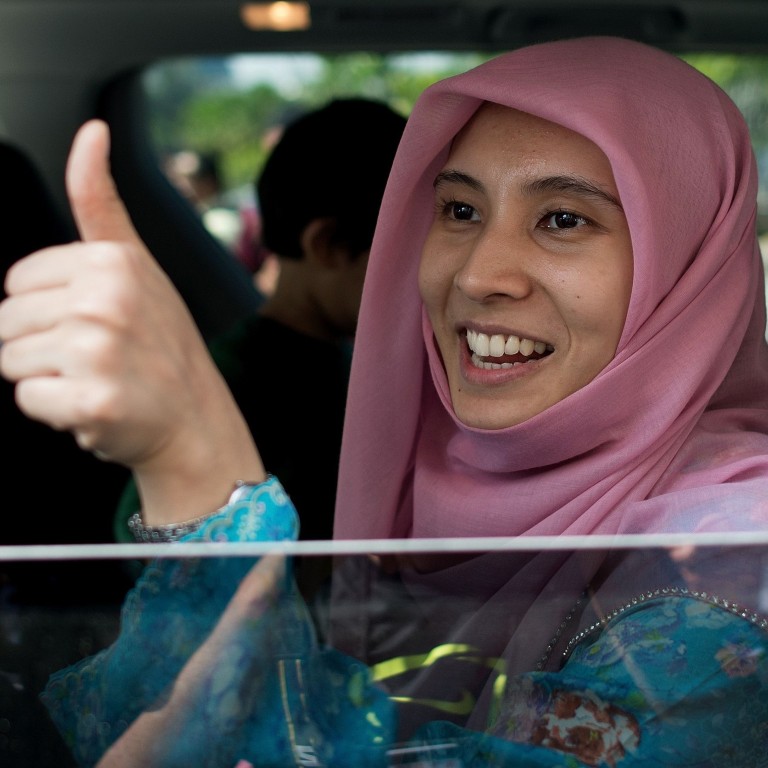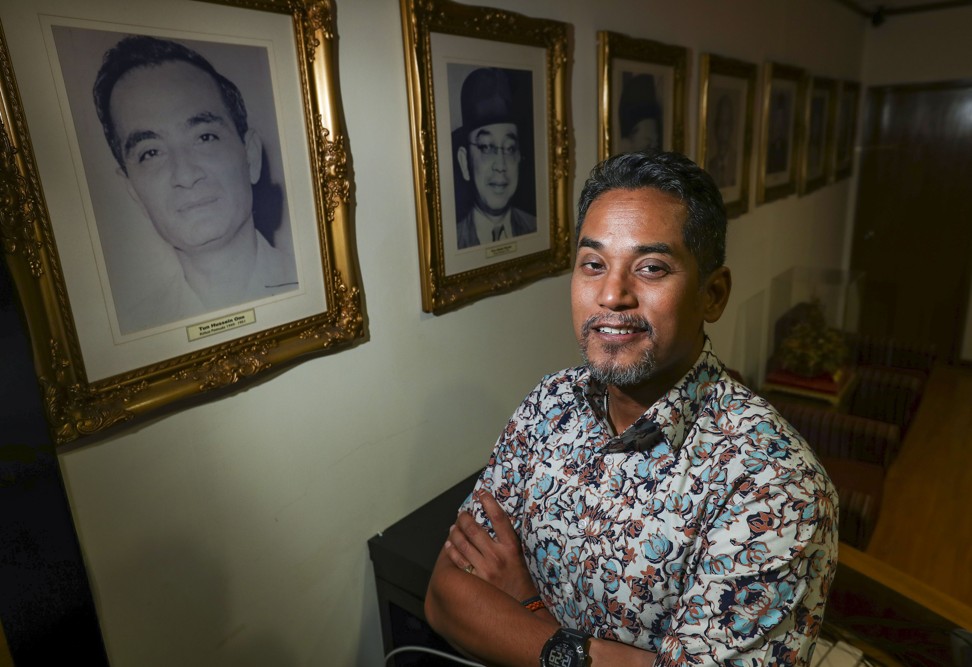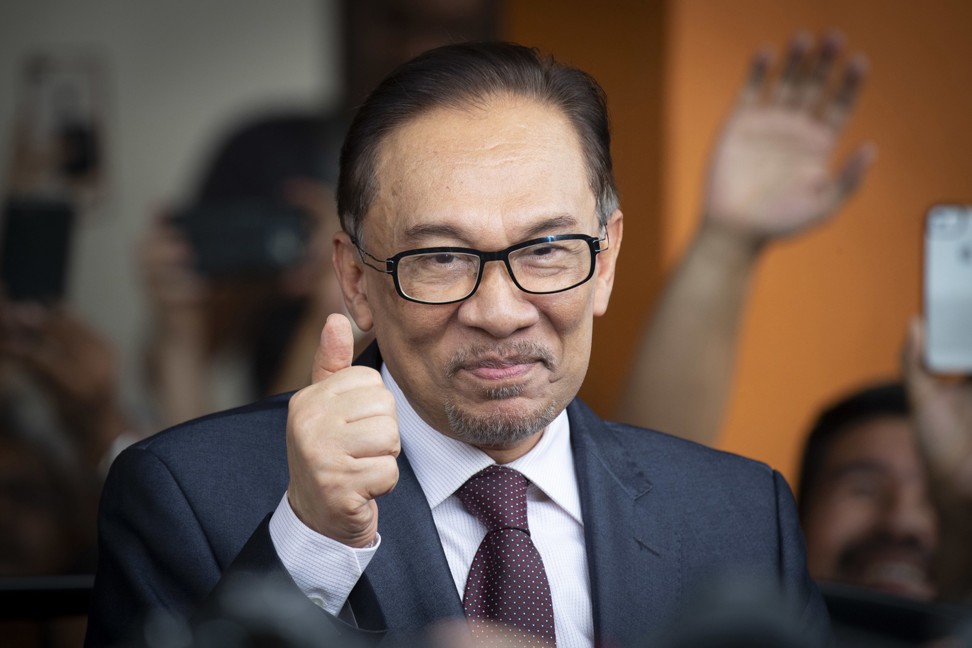
Malaysia’s reform-minded ‘young guns’, from Nurul Izzah to Khairy Jamaluddin, take aim at race-based politics
- Young political leaders – including the daughter of PM-in-waiting Anwar Ibrahim, and an Umno stalwart – are distancing themselves from intra-party power tussles to position themselves as the leaders of a new generation
While the old guard of Malaysian politics forms factions in intra-party power tussles, younger politicians are distancing themselves from the fracas to steer the country away from race-based identity politics and pursue parliamentary reform.
Member of Parliament Nurul Izzah Anwar, daughter of democracy icon and prime minister-in-waiting Anwar Ibrahim, made waves by resigning from the government and as vice-president of her father’s People’s Justice Party (PKR) last month to pursue her “beliefs and ideals” as a backbencher.
“My only regret is that I should have made this announcement sooner, but it has not been an easy decision to arrive at … Now that I have had the chance to take stock of where I stand in relations to politics, I am resolved to doing the right thing,” said Nurul Izzah, 38, who served as chair of the Malaysian Technical and Vocational Education and Training Empowerment Committee (TVET).
Anxieties about ‘new Malaysia’ go deeper than race
Her decision sparked speculation about her motivations, with theories ranging from disillusionment with the party following internal elections overshadowed by allegations of vote-buying and bribery; an attempt to counter accusations of nepotism; and even a falling out with her father over PKR’s refusal to accept defectors from the opposition.
Responding to his daughter’s decision some days later, Anwar, 71, pointed the finger of blame at “certain individuals within [the] party leadership” who were more concerned with consolidating their own power rather than serving the people and the party.

Nurul Izzah, who chaired one of several new parliamentary committees set up to address issues including gender equality and public appointments, was soon spotted having lunch with opposition stalwart Khairy Jamaluddin, 42, of the United Malays National Organisation (Umno), and Rafizi Ramli, who was recently appointed PKR vice-president.
The meeting bolstered talk of a possible third force being set up by the progressive and reformist “young guns”, who command strong support among younger Malaysians. Although the trio quickly quashed the rumours, their image as the faces of young, alternative politics was cemented.
According to an Umno source, the three “regularly meet” to discuss how to manage clashes of ideology – a frequent occurrence for both Rafizi, 41, who leads a strong faction that is often at odds with his rival Azmin Ali, the economic affairs minister, and Khairy, who has vocally criticised senior Umno leadership and called for the party to reinvent itself after losing the May general elections.
While the upper echelons of politics are preoccupied with questions of party-hopping to consolidate power and when Anwar will take on the premiership – a role promised to him by Prime Minister Mahathir Mohamad, 93, within a “give-or-take” two-year time frame – these backbenchers are focused on parliamentary reform and policy at the grass roots level.
Can a ‘New Malaysia’ emerge while those in power play an old game?
James Chin of Tasmania University’s Asia Institute attributes the popularity of leaders such as the Oxford-educated Khairy – popularly known as “KJ” – and Nurul Izzah to their savvy branding and avoidance of racial or religious rhetoric for political mileage.
“These younger politicians, the more popular ones – they don’t deal so much with racial issues,” said Chin. “Their parties may play the race card but they themselves play it far less. Their branding is very specific – Khairy for the youths, Izzah as the ‘Reformist Princess’ who fights for equality, and Rafizi who deals with issues of class and speaks for poorer youths: largely non-racial platforms.”
Against the backdrop of Malaysia’s fraught identity politics and a growing number of youths who do not fit within the four official racial categories of “Malay”, “Chinese”, “Indian” and “other,” leaders who avoid racial politicking are seen by many as the future.

Tensions with the old guard, according to Chin, are likely to fade with time, paving the way for the next generation’s return to the top of politics.
PKR MP Wong Chen said the young leaders were “more idealist, more reform-minded” than their older colleagues.
“Some leaders are worried about the prospects of real change nine months after a new government was voted in,” he said. “There are many who are seeking merely to consolidate their own position, and reform has stagnated. This is not acceptable as [government coalition] Pakatan Harapan won on a reform platform. This year will be a time for backbenchers to speak up and push for reform as the initial post-polls euphoria has now died down. The government cannot keep using the excuse of our poor economic condition to hold off reform, as many do not require money, they just require political will. Now that Nurul Izzah no longer holds any roles within the government, she is able to speak out and criticise if need be.”
The young reform-minded cohort is not limited to backbenchers – Youth and Sports Minister Syed Saddiq, 25, recently came under fire for criticising the practice of awarding contracts to friends and family members at the annual meeting of his Malaysian United Indigenous Party (Bersatu).
Saddiq said such cronyism could jeopardise the party, after a Bersatu vice-president demanded contracts and positions for delegates. Soon after, division heads began demanding Saddiq’s resignation, although other party members threw their support behind him.
“These youths have time on their hands,” Chin said. “The real question is whether they will stay within their own framework and parties, or organise something new. But by and large, the people are ready for them to lead as they are icons of the new generation.”

